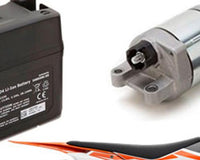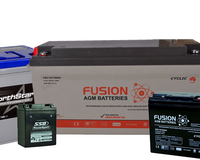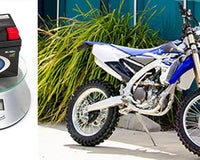Table of Contents
Our lives have been more convenient, thanks to home automation. It has changed many people’s lives in the past few decades as technology advances and as inventors discover new ways to make things much easier and faster for all of us. It is true that it's nearly impossible for individuals nowadays to be unaware of what it means and the benefits it provides for our homes and more importantly, our businesses.
For some, home automation may appear to be a relatively new development and this is true when it comes to user-friendly and cost-effective smart home solutions. The technological developments that have taken us to this position, on the other hand, have been ongoing for quite some time.
In this article, we’ll take a closer look at how home automation started and how it continues to impact our daily lives — in a positive way.
History of Home Automation
Smart home technology has come a long way in recent years, but it wasn't always that way when the original ideas were introduced.
The Advent of Home Appliances
The invention of the engine-powered vacuum cleaner sparked innovation in domestic appliances between the 1900s to the 1920s. Refrigerators, washing machines, irons, and toasters soon followed, revolutionizing the life of domestic workers. However, they were still beyond reach for most families because of their extravagant price.
The ECHO IV (Mid-1960s)
ECHO IV, the first-ever smart device, was created after decades of advancements in computing and electronics development. Developed by Engr. Jim Sutherland, this machine could prepare shopping lists, keep track of your home's temperature, and even operate your appliances.

The X10 (1975)
The release of X10, a home automation platform that delivers digital information through radio frequency bursts onto a home's existing electrical wiring marked the birth of current smart home technologies. With the use of a command console and modules, early adopters of this technology could remotely operate devices in their houses.
Home Automation Breakthrough
During the 1980s, home automation became much more popular among the general public. Things like motion-sense, automatic garage doors, fiber home optics, and early home security systems started to be a staple in people’s homes and other establishments.
The Clapper
The 90s is known to be “the decade of home automation” as TV shopping was very prominent at that time. It gave inventors an avenue to showcase their creations and one of them is The Clapper. Invented by Carlile R. Stevens and Dale E. Reamer in 1996, this electrical switch was one of the most famous inventions of the twentieth century which was activated by sound, most notably “a clap”.
Home Automation Today
Home automation has progressed to the point where smart homes are no longer just a science fantasy concept. It became much more affordable as internet technology advanced rapidly. Here at Battery Specialists, we offer batteries for your Arlo/Netgear Pro & Pro 2 as well as batteries for universal remote controls.
See our collection of home automation batteries according to your needs by clicking here.
What Are Home Automation Systems and their Advantages?
Security Automation System
Controls and systems for home security assist keep track of who enters and exits the house. If an unauthorized individual tries to enter, the system will notify the homeowner. By using electronic locks, automated doors and gates can also make the forced entrance more difficult.
Appliance Control System
Using a smartphone or your computer, you may control your appliances with an automated appliance control system. There are mobile applications that only need a single tap to turn your appliances on or off. Smart outlets, plugs, and switches are all components of this system.
Smart Home Automation System
Using a smart home automation system means it has the ability to send commands to each system in order to carry out a certain task. It is in charge of ensuring that all automated systems in your home are fully integrated.
What does Home Automation Look Like in the Future?
Although smart homes are becoming more sophisticated, the goal of providing peace of mind remains the same. The continuing integration of home gadgets, we believe, will be the emphasis of the future of home automation. In addition, appliances will continue to improve the home's individuality, control, comfort, and convenience.
One thing we do know is that you can use your phone to stay connected and informed no matter where you are, thanks to existing home automation technologies. It is indeed true that nowadays, convenience is really important and that’s what makes home automation a great option for most of us.











